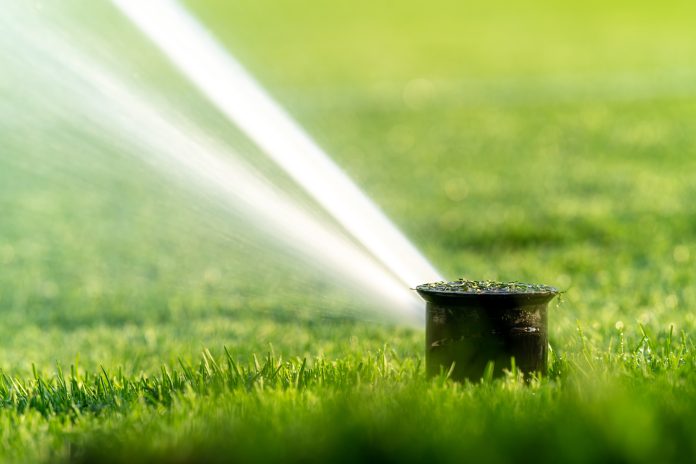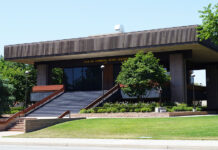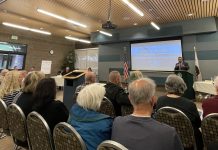By Ronan Jensen
As it always seems to be in California, water was the talk of the town in last week’s La Palma city council meeting. The members were given a presentation on the status of the city’s water quality, the most urgent topic brought up in a conference that otherwise included items such as a proposed contract regarding resurfacing basketball & tennis courts and an annual update on the police department’s military equipment.
The subject of water filtration was three-pronged, with varying degrees of severity pertaining to each. The least concerning is that of La Palma’s “brown water”, which has to do with higher levels of iron and manganese finding its way into the city’s wells. However, it was noted more than once that the current amount of iron and manganese found in La Palma’s groundwater is not harmful to the public’s health in anyway. The only consequences are cosmetic ones: brown stains caused by iron and blacker stains caused by manganese.
The same cannot be said for arsenic, a metalloid found in a number of rocks and minerals. Arsenic is considered harmful to human health in any form, which makes its presence more concerning than the previously stated amounts of iron and manganese. The city council was informed that the current levels of arsenic found in La Palma’s groundwater is inching close to California’s recommended limits of the element, and that the water will require treatment.
Also highlighted during the presentation was the subject of PFOS (perfluorooctanesulfonic acid), a man-made chemical found in countless household items such as cooking wares, fabric and food-packaging that can lead to illness when consumed. While PFOS wasn’t detected in La Palma’s groundwater when last checked in 2015, other nearby cities such as Anaheim have had to shut down some of their wells over PFOS levels. The city council was informed that a plan to tackle PFOS contamination is going to be proposed on a national level, that La Palma has several options of how to proceed once that national proposal is finalized, and that the city is already considering funding plans to implement whatever option is chosen.
“It’s a national issue, it’s a state-wide issue,” said Mayor Pro Tem Goodman. “I think we should jump on this”.
Apart from the update on the city’s water, one of the meeting’s items included an annual military equipment report required by California state law. Among the pieces of hardware that were mentioned as being in the possession of the La Palma Police Department during the 2022 calendar year included UAS devices (drones), an RV-converted into a mobile command center, multiple AR-15 rifles, and non-lethal beanbag shotgun. After the presentation was finished, the city council unanimously passed a motion to continue the current military equipment policy of transparency.
Also of importance was the item regarding the resurfacing of La Palma’s basketball and tennis courts. The discussion was brought to the council’s attention in order to debate the possibility of striping the basketball courts with pickleball striping. The award of contract discussed amounted to $84, 323, with an appropriation of additional funding totaling $43,450. After being provided with both the pros & cons of both options, the council ultimately decided to not stripe the basketball courts for pickleball, deciding to wait until separate pickleball courts are built to see if there is a demand for further locations.
Other topics brought up during the meeting were an update on that status of the usage of the city seal on official documents, an acknowledgement of Juneteenth, a presentation on relay events related to cancer awareness, and an announcement that the city council’s sound equipment is scheduled to be updated in August.












